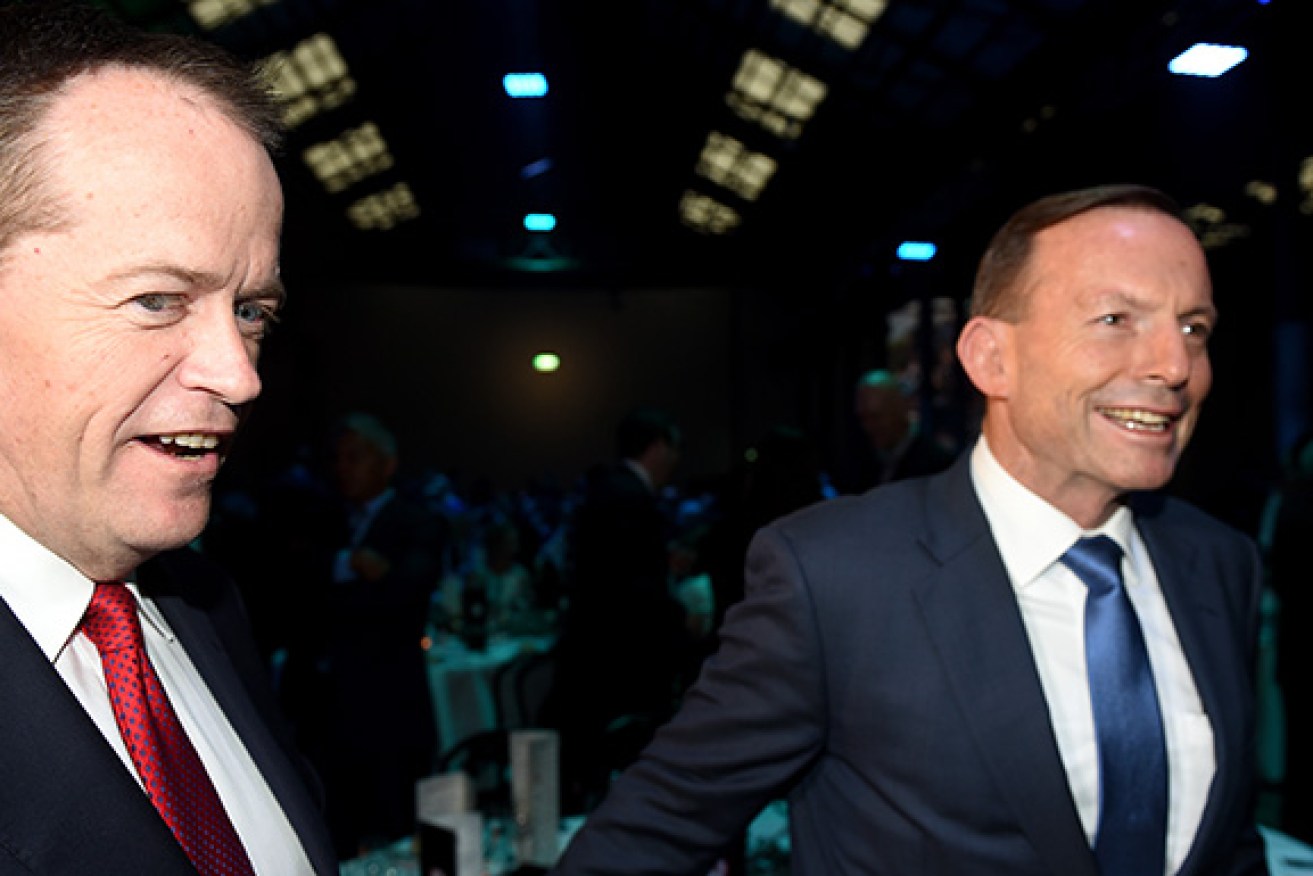Why national security should NOT be above politics


OPINION
Last week Prime Minister Tony Abbott outlined his vision for Australia’s national security in a speech at the Australian Federal Police headquarters.
The Senate has blocked much of the Abbott government’s legislative agenda. But national security is different: national security is above politics.
Is that a good thing? Not always.
Having the backing of the Coalition and the ALP means national security laws – laws which impact most on civil liberties – receive little real scrutiny. This is particularly worrying because Australia is unique amongst Western democracies in having no Bill of Rights. We rely entirely on our parliamentarians to defend our rights.
• National security vs job insecurity – that’s the equation
• Data laws need change, says committee
• Sources ‘certain’ Islamic State executioner is ‘Jihadi John’
So why do our major parties march in lock step?
Faced with the threat of terrorism, parliamentarians on both sides of the House do not want to appear to be soft on terror. They want to be tough. These conditions give rise to bipartisan support.

Prime Minister Tony Abbott delivers his speech on terrorism and national security.
To reassure those with concerns about liberties governments attach conditions to counter-terror laws, known as sunset clauses. These clauses place a time limit on the operation of the laws – in Australian national security legislation the limit is typically 10 years. At the end of that period there must be a review and parliament must then choose whether or not to renew the measures.
That seems reasonable but recent history reveals a major problem.
In recent years there have been: four reports from the Independent National Security Law Monitor; the COAG review of counter terrorism laws; numerous reports from NGOs and academics; and an array of reports from various parliamentary committees. Copious reforms have been suggested – some tougher measures, mostly calls for repeal.
When the PM outlined his national security strategy last Monday he did not appear to draw on those reports. Instead he reached for the old playbook – even tougher laws. We are still waiting for a substantive overhaul of Australia’s anti-terror laws.
Simply put, sunset clauses rarely lead to repeal. The time for scrutiny is when laws are being passed. And the cold reality is that bipartisanship impedes scrutiny.
However, there have been recent signs that bipartisanship might crumble.

Under surveillance: Attorney General George Brandis.
Opposition Leader Bill Shorten has released correspondence between the PM’s office and his own on the subject of data retention. He accused the PM of playing politics with anti-terrorism legislation. He urged the PM to grant the Parliamentary Joint Committee on Intelligence and Security (PJCIS) the time to examine the data retention proposals.
Mr Shorten called for “responsible bipartisanship”.
Recently, Mark Dreyfus, the Shadow Attorney-General, signalled his unease with proposals to revoke the Australian citizenship of dual-citizen terror suspects. Mr Dreyfus has warned against Australia becoming an exporter of terrorism; implicitly suggesting that government proposals would have just such an effect.
In November Anthony Albanese criticised his party’s bipartisan support of the Foreign Fighter Act – although he did so after the Bill had passed. Some might argue that Attorney-General George Brandis politicised that debate further when he claimed that minor and technical amendments to the arrest powers contained within the Foreign Fighters Act had prevented a “death cult terrorist attack” in Sydney in February.
But these minor cracks will be papered over. Bipartisanship will be restored. When push came to shove the ALP looked set to line up with the government and vote in favour of the Telecommunications (Interception and Access) Amendment (Data Retention) Bill 2014.
Are these laws truly necessary? Why is the Australian Competition and Consumer Commission gaining access to the stored meta-data under the provisions of a national security act? Are these laws about Game of Thrones or the caliphate?
Bipartisan puts a stop to the debate.
If you enjoyed this article, read: Why tougher terror laws won’t stop ‘lone idiots’
Dr Fergal Davis is a senior lecturer in law and member of the Gilbert and Tobin Centre of Public Law at UNSW, Sydney. He has over a decade’s experience lecturing on parliaments, human rights, law and terrorism in Australia, Ireland and the UK and his research has been published internationally. He tweets about law and politics @fergal_davis.







